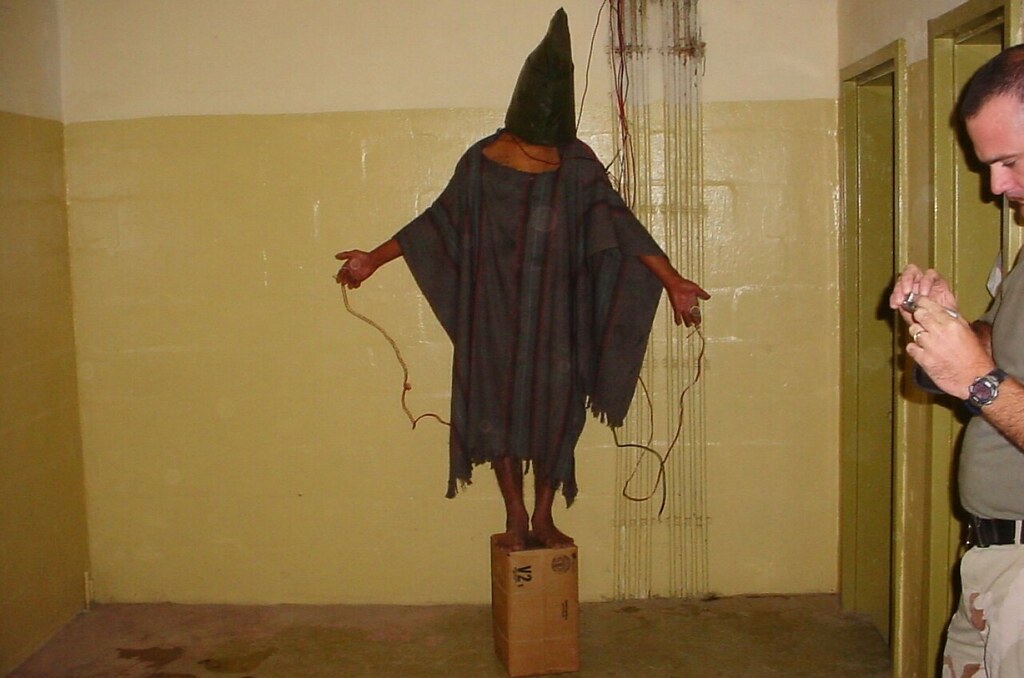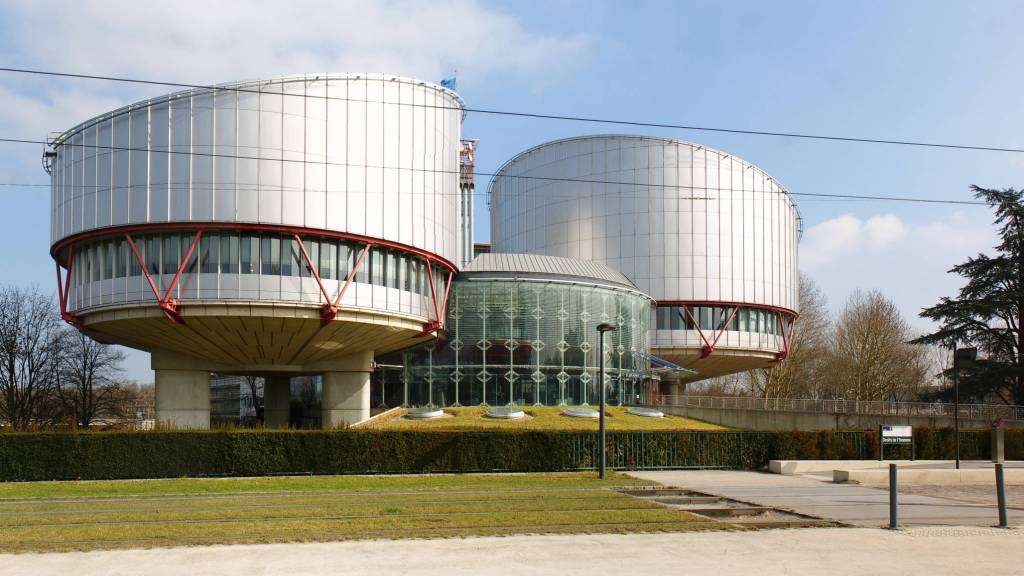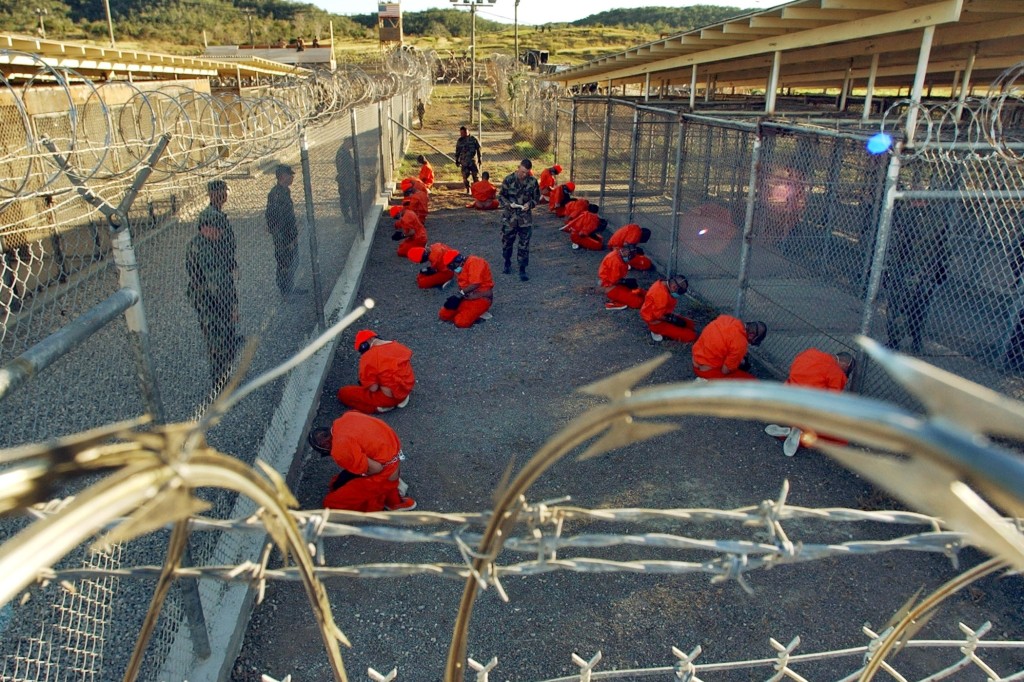The wide-spread enactment of anti-terrorist laws in the name of national security has led to the suspension or restriction of fundamental rights, such as the right to due process and a fair trial. The enforcement of these laws has also threatened non-derogable rights, such as freedom from inhumane treatment or torture. To what extent are restrictions on civil liberties and human rights morally or legally justified in times of terrorism?
These restrictions on human rights include administrative measures, such as the practice of mutual legal assistance, which bypass protections afforded by criminal law, including rule-of-law guarantees from third countries which ensure due process, all in the name of fighting terrorism.
In order not to jeopardise the own democratic values, the United States and the European Union must respect the fundamental and non-derogable rights guaranteed by the UN Universal Declaration of Human Rights, the European Convention on Human Rights (ECHR) and the Charter of Fundamental Rights of the European Union, and administer them uniformly. Currently, appeals to national security are used by many authoritarian regimes to justify arbitrarily detaining and suspending basic rights like freedom of the press and freedom of assembly against perceived political opponents.
Free democratic societies must stand up for fundamental human rights, especially in exceptional circumstances, if they are to preserve their commitment to the dignity of the human person and the rule of law.
Since the terrorist attacks of September 11, 2001, numerous anti-terrorism laws have been adopted in the US and Europe. In the process, civil liberties and human rights have been severely curtailed or suspended. Anti-terrorist laws, enacted in the name of national security to protect citizens from external threats, have come to undermine fundamental human rights, including the right to a fair trial, and non-derogable rights such as freedom from torture and cruel, inhuman or degrading treatment. However, Article 29(2) of the Universal Declaration of Human Rights states that everyone has the right to freedom and development of his personality, and that laws may restrict this right only in emergency situations in order to maintain the common good and public order in a democratic and constitutional system. Article 29 establishes the principle that international human rights cannot be restricted arbitrarily. The United Nations Global Counter-Terrorism Strategy, in the form of a Resolution and a Plan of Action, adopted on 8 September 2006, asserts that counter-terrorism measures and respect for human rights are not opposed and that counter-terrorism measures must be consistent with human rights. However, since 9/11, the conflict between human rights and security interests in Europe and the US has been steadily growing. The impartial application of international law is a testament to a nation’s respect for the international community and the rule of law. Governments that break international laws and agreements do so at their own risk. There are a number of sanctions, including comprehensive trade sanctions, that can be imposed. Unfortunately, the US, which has historically taken the lead in establishing international law and supporting international organisations and is the only remaining “super power”, regularly comes under attack in the media and from NGOs for breaching international law.
From the series: The universal validity of human rights by Dr. Michele Sciurba
Restrictions of Human Rights in Times of International Terrorism
Any “justifiable” restriction in the enforcement of human rights under international humanitarian law must comply with the rule of law. In the fight against terrorism, the rights of prisoners may be restricted in exceptional circumstances, i.e. threats to national security, in accordance with Article 9(2) of the United Nations Covenant on Civil and Political Rights. Many states do not acknowledge that terror suspects have prisoner rights in general, which means that those suspected of terrorism are not informed of the charges against them, the reasons for their detainment or the possible length of their imprisonment. Nevertheless, international humanitarian law and the UN Covenant on Civil and Political Rights permit states to restrict prisoner rights only under emergency conditions. Even in emergency situations, the principle of proportionality must be respected. This means that the measures may only be maintained as long as an acute threat exists.
The most problematic practice when detaining people is the targeted kidnapping of suspects and the detaining those captured in secret prisons, without providing information to their relatives or the public about their arrest and their whereabouts. This practice of systematic kidnapping and enforced disappearances was characteristic of many Latin American dictatorships in the 1960s and 1970s. The catastrophic social and political impact on civil society of these practices resulted in the establishment of the Organization of American States (OAS), the first organisation to pass an international treaty outlawing such practices. Violent abduction by state actors has also been banned by the UN Convention on the Protection of All Persons from Enforced Disappearance since the end of 2010. The international community is required to prosecute and sanction arbitrary and secret detention. Against this background, the Patriot Act, which allows US intelligence agencies to kidnap people throughout the world and to detain them in secret prisons, and is a central legal pillar of the US “global war on terror”, is impermissible under international law.

The Patriot Act, enacted in October 2001, was amended by President Bush’s Military Order of November 13, 2001, which specified that non-US terrorist suspects could be detained indefinitely without trial. The law authorized US authorities to conduct extensive monitoring and interception of suspected terrorists, without being subject to due process or judicial review. Human rights advocates have criticised the Patriot Act as a violation of international law. Unfortunately, the US does not officially recognise the Rome Statute of the International Criminal Court (ICC); and the bilateral agreements the US has with more than 50 countries makes it impossible to extradite US citizens to the International Criminal Court at The Hague.
In her essay “Extraordinary Rendition, Torture and Other Nightmares from the War on Terror”, human rights expert and professor at Washington University in St. Louis, Leila Sadat, emphasises that secret detention centers and the forced disappearance of terrorist suspects to third party countries poses a major problem, since no public information is available about these places. According to Sadat, investigative journalists have identified CIA “black sites” in eight countries, including Thailand, Afghanistan, several unspecified countries in Eastern Europe, and Guantanamo Bay, Cuba. In the process of prosecuting the “war on terror” the Bush administration violated not only the Geneva Convention’s international ban against torture in the treatment of prisoners of war but also its own code of military conduct.
The so-called Lieber Code of 1883 named for the German-American legal scholar Franz Lieber, also known as General Order 100, was signed by President Abraham Lincoln to dictate how soldiers should conduct themselves in wartime. In Article 16, it sets out prohibitions against acts of cruelty, including torture: Military necessity does not admit of cruelty—that is, the infliction of suffering for the sake of suffering or for revenge, nor of maiming or wounding except in fight, nor of torture to extort confessions. It does not admit of the use of poison in any way, nor of the wanton devastation of a district. It admits of deception, but disclaims acts of perfidy; and, in general, military necessity does not include any act of hostility which makes the return to peace unnecessarily difficult. The Lieber Code formed the basis of The Hague Conventions of 1899 and parts of it are included in The Geneva Convention. Its prohibitions against cruelty and torture go to fundamental issues of military conduct in times of war and to the dignity that should be accorded to all human beings, simply by virtue of the fact that they are human.
Indeed, the respect for human dignity, even under the extreme conditions of war, is what distinguishes civilisation from barbarism. The fact that the US uses its considerable economic and military might to circumvent not only international law, but violates the fundamental values inscribed in its own military codes and traditions is not only lamentable, but downright shameful. The stated concern that Americans could unfairly face politically motivated criminal proceedings before the ICC is clearly outweighed by the interests of the international community and indeed, all nations of goodwill, including the US, in ensuring that torture, and other crimes against humanity, shall not be tolerated under any circumstances. The long arm of international justice extends to all nations and does not cease at the gates or border walls of any nation, however powerful – not even the United States of America.

The Patriot Act was used as a blueprint for anti-terrorist laws worldwide, and these laws have led to a massive restriction of civil liberties and human rights. For example, in 2008, France passed a new law that allowed “preventive detention” for up to one year. After that time, the terms of the detention can be renewed. The law was introduced under the guise of fighting terrorism, but can be applied to any person considered dangerous. The UN Human Rights Committee and the Commissioner for Human Rights of the Council of Europe consider the law a violation of the right to liberty and security of a person.
Similar developments can be observed in the United Kingdom. Elisabeth Stubbins Bates, expert in international humanitarian law, who in her report on “Terrorism and International Law” offers a challenge to the restriction of human rights in the EU, cites the case A and Others v Secretary of State for the Home Department [2004], in which the House of Lords issued a declaration of incompatibility in the UK of the Anti-terrorism, Crime and Security Act (ACSA) 2001 with the ECHR in the United Kingdom on the basis of Section 4 of the Human Rights Act 1998. The ACSA 2001 was legislation adopted after the shock of 9/11 and, like many other anti-terrorist laws enacted immediately after the terrorist attacks of 11 September 2001, constituted a violation of the ECHR. She points out that the government replaced the ACSA 2001, the “system of internment”, with a framework of derogating and non-derogating control orders in the Prevention of Terrorism Act 2005 (as amended in the Counter-Terrorism Act 2008). ‘Derogating’ means that the control order would involve such a deprivation of liberty or other infringement of rights under the ECHR that the UK would have to derogate from a specific article citing a public emergency. This means that control orders which result in deprivation of liberty and violate or restrict rights under the ECHR are permitted only in the event of an acute threat to public safety and must be temporary. Executive orders are not judicial powers. The Home Secretary must have specific reasonable grounds to conclude a person is involved in terrorist activities and activate measures to ensure public security. Yet these cases illustrate how attempts are being made to circumvent legal norms in times of terrorism, especially in the area of criminal prosecution.
The Restriction of Human Rights by Mutual Legal Assistance
Mutual legal assistance today often leads to fundamental civil liberties and human rights being restricted or suspended by administrative practices. In many cases, the consequences for the accused can be devastating. In the UK, Section 447 of the Proceeds of Crime Act 2002, in relation with Article 7(2) of the Proceeds of Crime Act 2002 (External Requests and Orders) Order 2005, regulates that the Crown Court can issue restraint orders at the request of criminal investigators from a foreign country. This law permits, within the framework of mutual legal assistance, the freezing of assets and money of the accused by law enforcement at the request of foreign states. Unfortunately, the law does not consider whether the accused is guaranteed due process. Confiscating a person’s property or assets absent certain protections constitutes discrimination and violation of fundamental rights guaranteed by the ECHR. To make external requests de facto justifiable, the law would need to require the requesting state to demonstrate that it complies with the principles of fair trial as defined by the ECHR or by the Human Rights Act 1998 in the UK.
Articles from Dr. Michele Sciurba: Back to Torture | Refugees in Europe | The Paris Attacks
The ECHR and the principles of a constitutional proceeding suggest that a request for mutual legal assistance must be warranted, include all relevant questions of facts and law and conform to the principles of a fair trial. Otherwise, the request must be rejected. In Director of the Serious Fraud Office v A [2007], a Crown Court judge had frozen assets without notice based on a restraint order by an Iranian judge. However, in his request, the Iranian judge did not mention that he was a judge in the military court. As a result, the English judge released all frozen assets based on the non-disclosure of this materially relevant fact. The court saw a serious violation by the Iranian authorities of the “duty of candour” because they omitted essential information in requesting legal assistance. In the fight against international terrorism, EU Member States regularly cooperate with countries that do not comply with the principles codified in the ECHR and the Charter of Fundamental Rights of the European Union. The exchange of personal data and information gathered by law enforcement authorities such as Europol or Financial Intelligence Units with third party countries is particularly problematic, since this exchange of information is often not subject to mechanisms that ensure democratic control or judicial review. Third party countries often do not have a functioning or independent judiciary that would guarantee those accused of wrongdoing a fair trial.
The Principle of Fair Trial
European politicians justify collaborations with torture states by appealing to the need to win the “war on terror”. In doing so, they not only lose political credibility but also whatever moral high ground that separates democratic countries from terroristic and totalitarian systems. The right to a fair trial is a fundamental principle of international law. The Universal Declaration of Human Rights requires each state to conduct a fair (independent and impartial) and public trial presided over by independent judges operating according with the rule of law in accordance with Article 10. This includes impartiality in the application of the law and forbids discrimination based on race, religion or political convictions. Equally, the same procedural rights, the so-called equality of arms, must be granted to defendants as well as prosecutors. A fair trial also requires that the defence must be granted unrestricted access to investigation files. In many countries today, including China, Turkey, Uzbekistan and many other countries, there is no independent judiciary. In the case of those arrested in Europe based on an international arrest warrant, the question always arises whether the extradition is permissible based on the ECHR and if sufficient guarantees for a fair trial are ensured, especially in cases of extradition to countries that allow for torture or the death penalty. For example, in recent years the European Court of Human Rights has issued a number of judgments against extraditions of persons to Uzbekistan as in the case of Eshonkulov v Russia [2015].

Although the European Court of Human Rights has consistently thwarted attempts by totalitarian regimes like the Uzbekistan government to, for example, deport Uzbekistani charged with crimes, the European Union continues to cooperate with states like Uzbekistan, Egypt or Saudi Arabia that employ torture. Prisoners in these states are at risk of being tortured or being forced to make confessions extracted under torture or under the threat of torture. For each State that has signed the ECHR this means that the granting of mutual legal assistance, including the freezing of assets in the course of investigation in these countries, violates the principles of a fair trial under Article 3 and Article 6 of the ECHR because judicial due process cannot be guaranteed in countries that do not accept the international prohibition against torture.
Information or evidence extracted under torture or the threat of torture cannot be admitted as evidence in European courts. Accordingly, the House of Lords decided in the cases A and Ors v Secretary of State for the Home Department (No 2) [2005] and RB (Algeria) and Anor v Secretary for the Home Department [2009] that evidence gained under torture or the credible threat of torture is not legally admissible. As a result, the mutual legal assistance countries like Germany, the UK or Luxembourg provide to torture states most likely violates international law and the ECHR.
Conclusion
Since the founding of the UN, the scope and application of universal human rights have expanded through the creation of the ECHR and the Charter of Fundamental Rights of the European Union. More recently, since the attacks on the Twin Towers in New York on September 11, 2001, there has been an increase in terrorist activities worldwide. Consequently, a new national security mentality has developed across the US and in Europe that jeopardises human rights. The right to a fair trial has been completely suspended for terrorist suspects at the US prison camp at Guantanamo Bay, Cuba. Similarly, provisions for so-called preventive detention is in place for terrorist suspects in almost all Western European countries.

In the Russian Federation, the US and Turkey, as well as an increasing variety of European countries, counter-terrorism policy has led to a massive restriction of human rights and civil liberties, such as the freedom of press and right to free assembly as well as the suspension of legal protections against preventive detention, all in the name of fighting terrorism. The number of cases pending before the European Court of Human Rights against European countries for violating provisions of the ECHR (more than 67,000 in 2016), speaks for itself. Especially in times of terrorism, states need to be increasingly adhere to the rule of law and not sacrifice fundamental legal principles for reasons of expediency. Rather it is precisely such times that test a country’s resolve and strength to be faithful to fundamental principles of rule of law.
The war on terror will not end anytime soon. In fact, it may become the new normal. This is all the more reason for democratic societies to preserve and defend the values of liberal democracy. Indeed, the recent anniversary of the fall of the Berlin Wall, which struck a blow for freedom and made the European Union possible, should remind us of the price ordinary men and women have paid for liberty. It is thus all the more concerning that the United States, which supported free societies in Europe and elsewhere, so quickly capitulated its leadership role in the development of international law in the face of terrorist threats with the passage of the Patriot Act. The targeted kidnapping, torture and killing of terrorist suspects by the US military and the CIA, which this Act allowed, has been a blight on the credibility of the US and undermined people’s faith in liberal, democratic values. Acts of cruelty and violations of human dignity are not only ineffective, but wrong. When a society abandons central values like the inviolability of human dignity, it becomes a source of fear which is at least as great as the fear of terror itself. Once the lighthouse of freedom and liberty is abandoned, who will keep watch against those who want to terrorise us and deny us the lives our freedoms and liberal values make possible?
There can be no compromise for inviolable human rights, like the absolute prohibition of torture. Reverting to the principle that the “end justifies the means” risks a return to barbarism and a society ruled by the will of individuals rather than by laws. It risks a society in which existing laws are subject to the capricious whims and personal and political interests of its leaders rather than its national interests. The shameful and humiliating statements made by President Trump regarding the deliberate killing by US special forces of ISIS leader Abu Bakr al-Baghdadi is a blatant example of this development. A state in which enemies are seen as less than human and citizens are viewed only as potential security risks, who can be monitored and spied upon without due process and state legal protections, constitutes a radical departure from the legal traditions of Western constitutional democracies and creates a political environment in which appeals to dignity and morality become hollow and empty.
Cover Image: A New York City fireman calls for 10 more rescue workers to make their way into the rubble of the World Trade Center.










